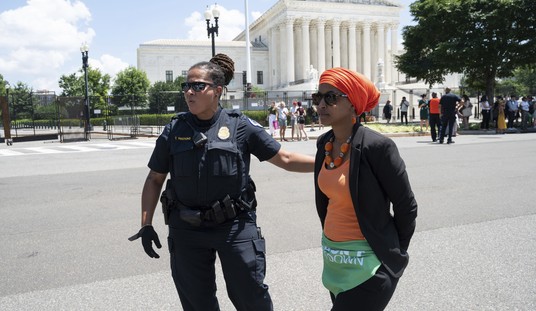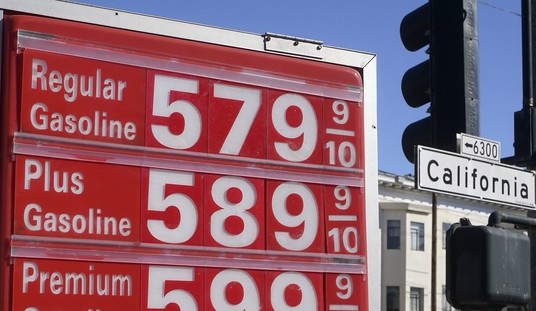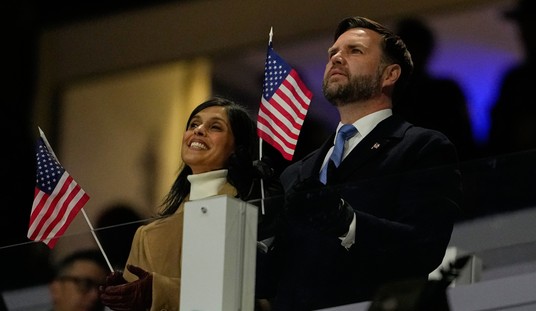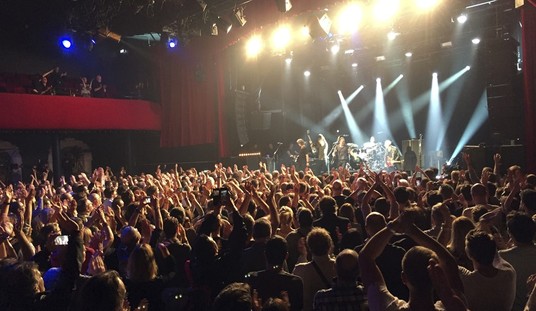There is no doubt that the Republican race right now has come down to Donald Trump vs. everyone else. The latest Q-Poll shows Trump with 28%, followed by a large pack of candidates including Ben Carson, [mc_name name=’Sen. Ted Cruz (R-TX)’ chamber=’senate’ mcid=’C001098′ ], Jeb Bush, [mc_name name=’Sen. Marco Rubio (R-FL)’ chamber=’senate’ mcid=’R000595′ ], Carly Fiorina, and John Kasich, who are separated by statistically insignificant differences. This is consistent with other recent polling which shows that Trump appears to have locked up (at this moment) the support of around 25% of Republican primary voters, which at the moment is enough to give him a comfortable lead.
Everyone is proceeding under the assumption that eventually, Trump’s base of support will collapse. I think Republicans at this point have to consider the reality that this won’t happen. There’s been one debate, there’s been a well-publicized flap with FoxNews, Trump has been hyper exposed to everyone. Nothing he can say or do can alienate his base of support so far.
I think the question everyone is asking right now, as the race achieves some measure of stasis, is this: How much farther can Trump rise? Is 25% his ceiling, or his base?
Presumably, as the race proceeds onward towards Iowa, New Hampshire, and beyond, some of the candidates who are currently in the race will bow out as their fundraising dries up or as they realize that the writing is on the wall. As the dust settles from these early exits, the voters from these candidates will go elsewhere. Will they coalesce around Trump as the frontrunner, or will they coalesce around some other alternative, such that it’s reasonable to expect that when and if the race becomes Trump vs. one or two other candidates (instead of 12 or 15), Trump will inevitably lose?
While we don’t know the definite answer to that question, we do have some clues. In the first place, Quinnipiac also asked GOP voters whether there were any candidates that they would “definitely not vote for.” Of all the candidates in the field (Republican and Democrat) who stand any reasonable chance of winning, only Trump (26%) and Jeb Bush (18%) had any measurable response to this question, indicating that a growing base – equaling his base of support – will vote for absolutely any other candidate besides him, if the chips are down.
On the other hand, in the most recent CNN poll, not only does Trump lead in terms of voter’s first choice (with 24%), he also leads in terms of voters’ second choice with (14%). The most recent FoxNews poll shows a similar story: while that poll shows that [mc_name name=’Sen. Marco Rubio (R-FL)’ chamber=’senate’ mcid=’R000595′ ] leads the “second choice” question with 13%, Trump is still shown as the second choice candidate of 10% of voters. While second choice support is notoriously soft and fickle, it does strongly suggest that as other candidates drop out of the race, Trump is likely to go up rather than down, at least initially. If Trump reaches the level that he begins polling nationally around the 35% range, especially after actual primaries and caucuses have occurred, it is difficult to imagine a scenario in which he does not eventually win.
What this suggests is that the other Republican candidates have work to do before the first ballot is cast, if they don’t want to be overwhelmed by a Trump tidal wave. Yes, it’s still early in August, but it’s a mistake to assume that Trump’s base of support will either implode on its own or that voters will inevitably coalesce around an alternate candidate. The other candidates are going to have to figure out some way to deal with him, because he’s not going to do himself in, at least if current trends hold.














Join the conversation as a VIP Member